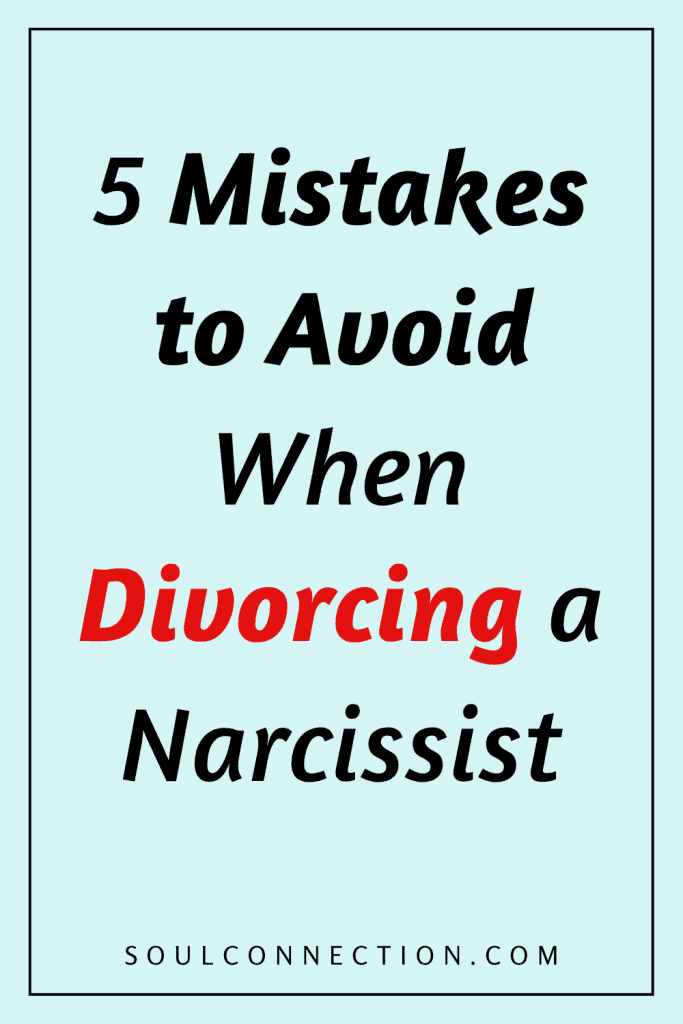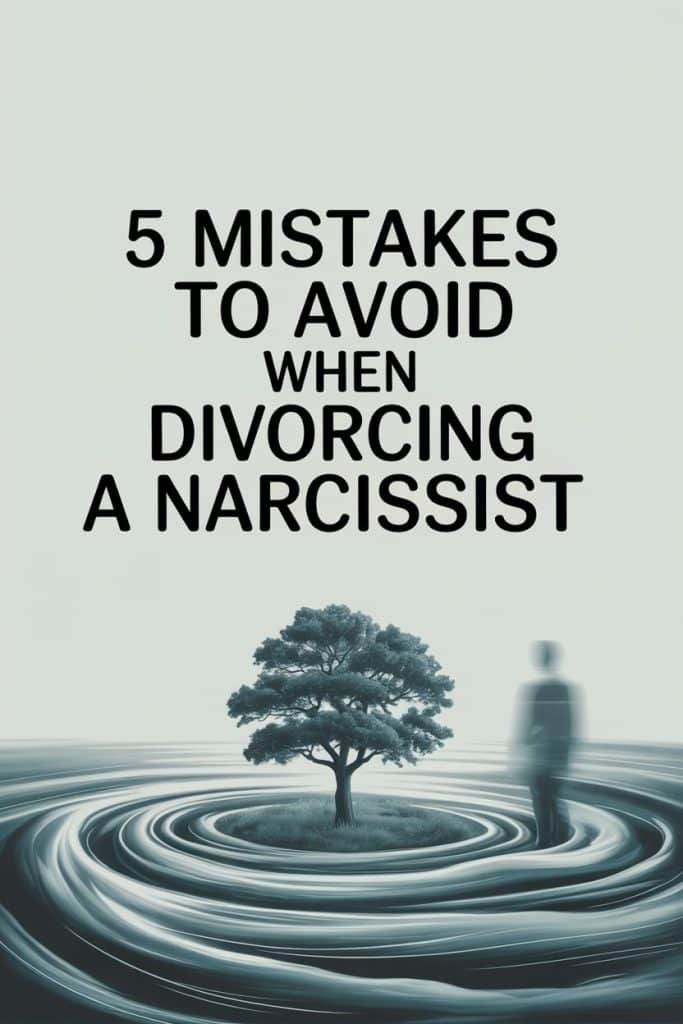Thinking of divorcing a narcissist? Well, pour yourself a cuppa, because you’re about to run the emotional equivalent of a marathon where the track keeps moving and the water stations are all mirages.
No one signs up for this stuff on purpose, but sometimes life hands you a partner who thinks empathy is a brand of luxury soap and “gaslighting” is a competitive sport.
Knowing what pitfalls to dodge can make the difference between surviving with your sanity intact and spending your nights composing angry Yelp reviews about your ex’s personality.
Here are five classic mistakes to steer clear of when untangling yourself from a narcissist.
1. Believing Logic or Kindness Will Win the Day
For most rational adults, divorce (even the messy, Kleenex-soaked kind) involves some acknowledgment of reality. Not so with a narcissist.
Expecting your soon-to-be ex to see reason, show mercy, or suddenly discover a conscience is like betting your life savings on a flying pig sighting.
Many fall into the trap of thinking, “If I just explain things calmly, they’ll get it.” Or, “If I compromise, they’ll compromise too.”
Spoiler alert: you’ll be left explaining things to your friends and therapist while your ex uses every tactic under the sun to ‘win’—and yes, they see divorce as a contest where compassion is for losers.
Instead, treat all interactions as if you’re negotiating with a particularly charming used car salesman. Assume manipulation is coming, double-check documentation, and respond with facts, not feelings.
Save your emotional energy for people who deserve it.
2. Underestimating Their Need for Control and Drama
A narcissist in the midst of a divorce is like a Shakespearean actor with a personal vendetta—every conversation is a performance, and every minor inconvenience is a tragedy worthy of a standing ovation.
Thinking they’ll “play fair” or be interested in a quick, quiet split is the stuff of fairy tales. Expect button-pushing, last-minute power plays, and wild accusations that would make a reality TV producer blush.
Narcissists crave control, and when they sense it slipping, they’ll grab hold of whatever levers they can—kids, money, pets, the neighbor’s opinion, you name it.
Prepare yourself for the drama but don’t feed it. Responding to every provocation is exhausting and pointless; it also gives them exactly what they want—your attention and emotional reaction.
Be strategic, keep communication above-board and business-like, and have a support team that won’t buy tickets to the circus.
3. Neglecting to Document Everything
If you ever wondered what it’s like to be your own private investigator, divorcing a narcissist is your opportunity. Verbal agreements and pinky promises are about as reliable as a paper umbrella in a rainstorm.
One of the top mistakes people make? Failing to keep a meticulous record. Narcissists are infamous for rewriting history, denying agreements, and suddenly developing amnesia about past conversations.
Dates, times, emails, texts, voicemails—save them all. If you’re communicating, do it in writing whenever possible. If you’re co-parenting, use parenting apps with built-in documentation features.
Courts love facts, not feelings. When your ex tries to play fast and loose with the truth, having a neat folder of receipts will make you look prepared and credible. It’s not paranoia; it’s preparation.
And it’s the best way to keep your story straight when your ex tries to flip the script.
4. Thinking the Court Will Instantly Spot the Narcissist’s Behavior
There’s a universal truth here: narcissists rarely show their true colors to anyone but their nearest and dearest (lucky you). In public, they’re often charming, calm, and reasonable—think Dr. Jekyll with a really good tailor.
Meanwhile, you’re the one with bags under your eyes and a mild twitch.
Many people believe judges, lawyers, and mediators will immediately detect what’s going on. But unless your ex has a meltdown à la toddler in a supermarket, don’t count on it.
Narcissists excel at playing the victim or the hero, depending on the audience.
Focusing on facts and patterns of behavior, not labels or diagnoses, will serve you better. Bring receipts, point out inconsistencies, and let your documented evidence do the talking.
It’s tempting to throw your hands up and blurt, “They’re a narcissist!” but the system deals in proof, not pop psychology.
5. Isolating Yourself or Going It Alone
Nothing says “bad strategy” like trying to outmaneuver a narcissist solo. They thrive on power imbalances and confusion, so flying solo makes their job a lot easier.
Common mistake? Not seeking support because you’re embarrassed, exhausted, or convinced no one will understand the crazy-making.
Isolation is the narcissist’s best friend. They may even try to alienate you from friends and family—don’t let them.
Find a lawyer who gets what you’re up against and won’t be swayed by superficial charm or crocodile tears. Choose a therapist who isn’t afraid to call out manipulation.
Rally your mates, your family, even the neighbor who saw your ex’s “great parking job” that time. The more eyes on the situation, the better.
And don’t forget online communities—there are whole virtual villages of people who’ve been through the same wringer. You deserve backup, not just for the legal wrangling but for your peace of mind.
Moving Forward After Escaping the Narcissist’s Web
Congratulations—if you’re reading this and nodding along, you’re already ahead of the curve. Divorcing a narcissist takes guts, grit, and a sense of humor (sometimes dark, occasionally maniacal).
Dodging these five classic mistakes won’t make the process painless, but you’ll sidestep a lot of unnecessary heartache and confusion.
No one emerges from a narcissist divorce without a few battle scars.
But with the right mindset and support—and perhaps a few well-timed sarcastic remarks—you’ll come out wiser, stronger, and far less interested in people who think empathy is optional.
Here’s to your next chapter, where the only drama is the kind you choose to stream on a Friday night.


